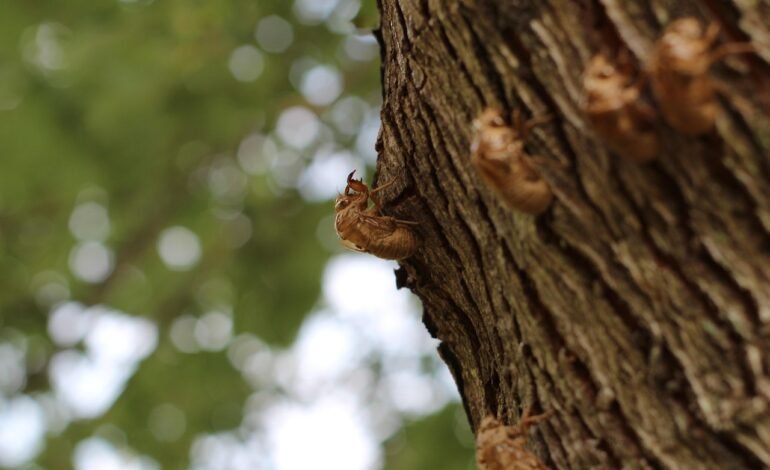Cicadas in Massachusetts Re-emerge After 17 Years Underground
Thousands of cicadas in Massachusetts emerge after 17 years underground, marking the return of Brood XIV in a unique natural phenomenon.

Image by Pixabay
For the first time in nearly two decades, the ground is shaking—literally, as cicadas emerge in Massachusetts this summer. Brood XIV cicadas are a species known for their rare, synchronized 17-year life cycle, emerging from the ground and bringing a spectacle to Massachusetts towns.
They don't do any harm, just a lot of noise.
Despite their dramatic arrival and strange appearance, cicadas in Massachusetts pose no threat. Brood XIV cicadas spend most of their lives underground as nymphs, feeding on tree roots. Once the soil temperature reaches about 64°F, they emerge en masse.
They don't sting or bite, nor do they damage trees when laying eggs; they follow a routine similar to other summer insects. These creatures are a harmless part of the ecosystem, offering a brief but powerful reminder of nature's rhythms.
Cicadas in Massachusetts
The outbreak began in the southern United States in April and reached Massachusetts in early May 2025. It is predicted to peak in the third week of May, with thousands of cicadas expected to fill the air with their signature chorus—a loud, buzzing song produced by males to attract mates.
Cicada sightings have been reported in Massachusetts in towns like Mashpee and Sandwich, with many residents turning to the Cicada Safari app to document their arrival. This citizen science effort is helping entomologists and curious observers track the progress of this synchronized emergence.
What comes next: a new cycle underground
After emerging, cicadas climb trees to sing, mate, and lay eggs. Their life above ground is short—lasting only three to four weeks. Adult cicadas in Massachusetts will die, leaving behind the next generation. These young cicadas will hatch, fall to the ground, and burrow beneath the surface—beginning the 17-year cycle all over again.
For more stories like this, follow More Latin.
Fountain: The Boston Globe
